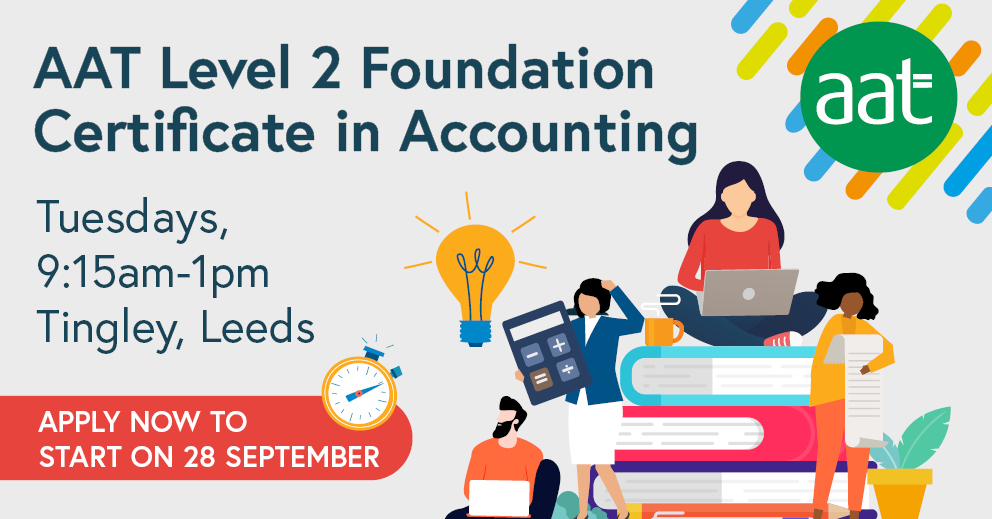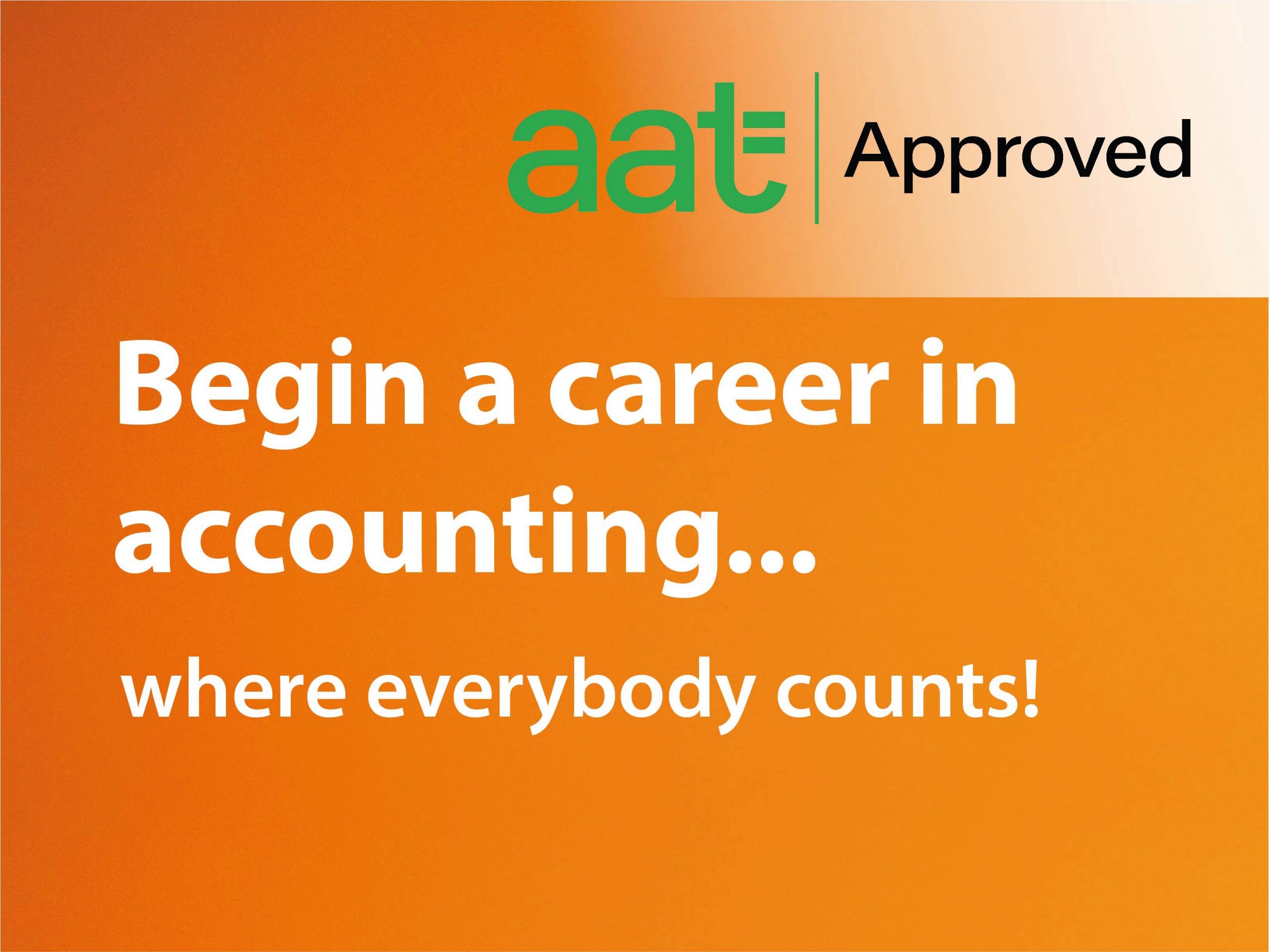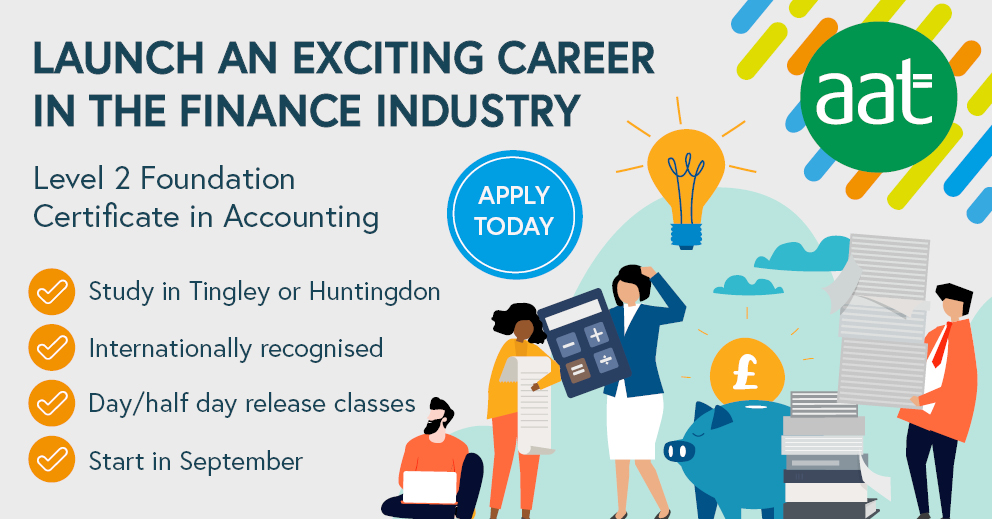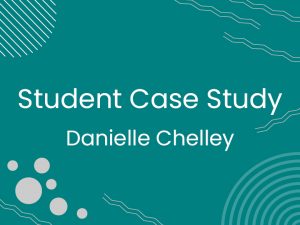AAT Level 2 Certificate in Accounting
Subject: Accounting & Bookkeeping
Awarded by the Association of Accounting Technicians (AAT), the AAT Level 2 Certificate in Accounting is the foundation level of the internationally recognised AAT qualification.
If you are new to finance or want to expand your existing knowledge and skills, this qualification could be the ideal course for you. You will learn a range of basic accounting principles and techniques, from costing and double-entry bookkeeping to computerised accounting.
The AAT accounting qualification is respected by employers around the world, providing you with excellent career prospects.
As a student on this programme you will need to register as a student member with the AAT. You can register online at www.aat.org.uk. Your AAT membership will give you access to extensive e-learning resources, forums, networking opportunities and practice assessments.
Key Facts
- Attendance: Half-day classes or blended learning.
- Duration: Nine months.
- Next start date: Classroom attendance - September 2024. Please note, blended learning students can start at any time.
- Location: Huntingdon or blended learning.
Course delivery details:
| Location | Attendance Options | Day | Time |
| Huntingdon | Half-day release (am) | Wednesdays | 9:15am-12.30pm |
| Blended Learning | No college attendance required, start at any time | n/a | n/a |
Entry Requirements
Whilst there are no formal academic entry requirements to undertake the AAT Level 2 Certificate in Accounting, competency in basic maths and English skills are necessary.
Course Content
This qualification offers a combination of classroom or online lessons and regular tutorial support. In addition to your classroom or online lessons, students will be expected to study for an additional eight hours per week.
The following four units will be studied:
Introduction to Bookkeeping
This unit provides students with an understanding of manual and digital bookkeeping systems, including the associated documents and processes. Students will learn the basic principles that underpin the double-entry bookkeeping system and will learn that digital accounting systems are automating some of the stages in the process
- Principles and procedures related to processing business transactions, financial documents and payments for customers and suppliers.
- Developing skills in processing ledger transactions and preparing an initial trial balance.
Principles of Bookkeeping Controls
This unit builds on the knowledge and skills acquired from studying Introduction to Bookkeeping and explores control accounts, journals and reconciliations. It takes students through a number of processes used in bookkeeping that help verify and validate the entries made. These processes enable the student to understand the purpose of control accounts and associated reconciliations. Students will also understand the use of the journal to the stage of redrafting the trial balance, following initial adjustments.
- Maintenance and reconciliation of a cash book by accurately entering receipts and payments, balancing and reconciling with bank statements.
- Knowledge and understanding of the UK banking system and related organisational activities.
- Petty cash transactions and the importance of the Journal as a primary accounting record.
- Maintaining control over debtors and creditors, aided by preparation and use of debtor and creditor control accounts.
- Non-standard bookkeeping transactions and double-entry bookkeeping records.
The Business Environment
The business environment is dynamic and is changing considerably as the digital age progresses to facilitate the global nature of business. It is essential that students are aware of the impact that this environment has on organisations, from sole traders to large companies operating in local, national and global markets, and that they are equipped with the knowledge and skills to enable them to work effectively.
This unit provides knowledge and understanding of key business concepts and their practical application in the external and internal environment in which students will work. Students will gain an understanding of the legal system and principles of contract law and an appreciation of the legal implications of setting up a business and the consequences this may have. Wider issues impacting businesses will be considered, including the global economic environment in which it operates, how governments impact upon it and the competitive nature of the global economy.
- Developing transferable skills and effective working in an accounting environment.
- Teamwork skills and the ability to work independently.
- Demonstrating workplace-ready standards of literacy and numeracy.
Principles of Costing
This unit gives students an introduction to the principles of basic costing and builds a solid foundation in the knowledge and skills required for more complex costing and management accounting. Students will learn the importance of the costing system as a source of information that allows management to plan, make decisions and control costs. Students should recognise the key differences from a business perspective between costing and financial accounting. Students will learn a range of techniques to cost materials, labour and overheads to establish the unit cost of a product or service, and this will include understanding and applying codes. Students will learn how to classify costs and will understand how different classifications of cost can be used for internal management decision making.
- Cost recording systems within an organisation and how best to respond to requests for information relating to costs and expenditure.
- Recording and extracting information, and using a costing system to provide information for management.
Benefits of the Level 2 Certificate in Accounting
Working in accountancy requires good communication skills, information technology (IT) skills and an understanding of the business environment, as well as an understanding of daily finance/accounting functions. The purpose of this qualification is to ensure that students are well rounded and well prepared to progress into a career in business, finance or professional accountancy, or into further education.
A student completing this qualification will develop accountancy skills in double-entry bookkeeping and basic costing, as well as an understanding of purchase, sales and general ledgers. Students will learn an understanding of accounting software and develop the professional skills and behaviours needed to contribute effectively in the workplace. Working in accountancy requires good communication skills, IT skills and an understanding of the business environment, all of which are covered by this qualification.
Assessment
Computer based exams will be undertaken. As we are an AAT accredited exam centre these exams can be taken at College without the need to travel to an external exam centre.
Course Fees
Course fees can either be paid in full before the beginning of the course, on an annual basis, or via our ‘Pay As You Learn’ monthly payment scheme. A CAW Loans2Learn scheme is also available, details can be found below.
If you have not achieved your qualification by the planned end date detailed in your individual learning plan, continued support and course access is available by paying monthly direct debit payments until certification is achieved.
| Full Fee | Pay As You Learn |
| £1,049 | £96 per month |
Awarding Body Fees*
Payment for AAT membership, exam fees (approximately £424*) and textbooks (approximately £33 per unit) will also be required.
* Awarding Body Fees are payable by all students or employers and recharged at cost and may be subject to change.
Funding Available to Residents of Peterborough and Cambridgeshire (Subject to Eligibility)
Check if you are eligible to undertake this course for free here.
 The CAW Loans2Learn scheme is a personal loan that can help you to spread the cost of your course into manageable payments. The loan can be used to fully or partially cover your course fees (but does not cover any awarding body fees, such as enrolment and examination fees). Please contact us for more information.
The CAW Loans2Learn scheme is a personal loan that can help you to spread the cost of your course into manageable payments. The loan can be used to fully or partially cover your course fees (but does not cover any awarding body fees, such as enrolment and examination fees). Please contact us for more information.
Sources of financial help can be found on our student finance page. Before making any financial decision it is recommended that you seek advice from an independent source, for example the Money Advice Service.
These are current figures and may be subject to change.
What Next?
After completing the AAT Level 2 Accounting qualification, you will have the opportunity to apply for the AAT Level 3 Advanced Diploma in Accounting course.
The Level 2 AAT qualification will allow you to work in a variety of roles, such as:
- Bookkeeper
- Purchase Ledger Clerk
- Accounts Administrator
Testimonials
What our AAT students say…
We asked our students what aspects of their AAT course they have most enjoyed. Here are some of the things they had to say!
- “Learning new skills, socialising with people within a similar field of work and with similar goals”
- “I have really enjoyed the classes and follow up activities for homework. The resources are very good”
- “Manageable sections. Broken down so not overloaded with information”
- “Good tutor making a hard subject easy to understand with good examples”




